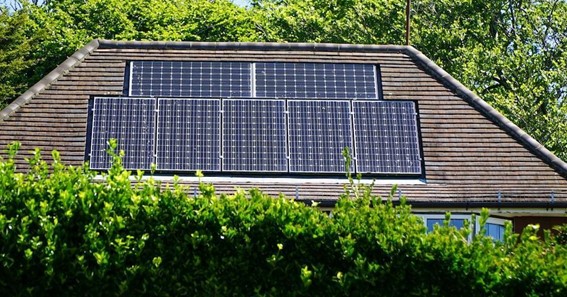So, you want to install solar panels and generate your own (clean!) power, but you must figure out how to decide. This list was prepared to assist you in making a wise investment. A solar energy system is an investment with far-reaching consequences. Numerous considerations exist beyond the initial cost.
Types of Solar panels
The solar panels vary in design and functionality depending on the solar cells they include. There are three primary categories of solar cells.
- Monocrystalline solar panels
- Polycrystalline solar panels
- Thin-crystal solar panels
Monocrystalline Panels
When it comes to transforming solar energy into usable power, they excel. Most of the time, they are a dark black color. The solar cells have a consistent lattice structure manufactured from a single silicon crystal. They are more efficient than polycrystalline panels because their uniform structure allows electrons to travel more freely. High efficiency means smaller solar panels that cost less and take up less space on your roof.
Click here – Beginner at Indoor Cycling? Install This App Today
Polycrystalline Panels
Their color is deep blue. The production method is highly complex. The expensive Czochralski method, which yields high-performance silicon wafers, or the less expensive Bridgman process, which yields lower-performance silicon wafers, may be used.
Electrons are less effective and have less space to travel because of the material’s nonhomogeneous structure, resulting from numerous crystals’ fusing. They are less effective since they take up more space on the roof.
Thin-Film Panels
Rather than using silicon wafers, these panels are manufactured by depositing semiconductor material on a ceramic substrate. This thin coating of metal “paint” is applied to the substrate. These solar panels cost less but demand more roof space.
Depositing semiconductor material on ceramic substrates creates thin film modules.
Factors to consider while choosing solar panels
1. Solar Panel Cost
While deciding on solar panels, it’s important to keep the price in mind. But it shouldn’t be the only thing to consider since the cheapest panel isn’t always the most efficient or the greatest solution in the long run. Solar panels have a long lifetime (more than 30 years). Therefore it’s more vital to guarantee a top-quality system than to pick the cheapest alternative, even though doing so might be dangerous.
2. Solar Panel Quality
This includes the solar panel’s construction and materials. Panel manufacturers vary in quality, price, and efficiency. Vertically integrated solar panel producers regulate all manufacturing stages. Quality and R&D are their priorities (R&D). Some panel producers don’t make cells or spend on R&D. They utilize more humans than robots yet make the cheapest panels.
Before picking a solar panel company, consider its reviews and customer experiences. As you’ll make a massive investment, it’s crucial to determine whether customers are happy with the product and customer service and if the company delivered on its promises.
Click here – Preventing a Car Accident from Happening: Is It Ever Possible?
3. Energy Efficiency
Solar panel efficiency determines how much electricity your system generates from light. For optimal results, efficiency is key (and more expensive). It is not always the greatest idea to purchase the largest and most efficient solar panel because you can end up paying more money than you need to satisfy your energy demands.
Assess your demands and choose a panel that meets them, but don’t overestimate them. Similarly, a Ferrari is not required to transport children to and from school (you can have it, of course, but you can do the same, spending a lot less).
4. Temperature Coefficient
A solar panel’s operating efficiency after installation might be negatively affected by heat. Overheating causes solar panels to degrade more quickly. Therefore a lower percentage per degree Celsius is preferable.
5. Durability
This may reflect the manufacturer’s confidence in the quality of their products. Solar panels often come with a 25-year guarantee (as long as the company operates). A short warranty term may indicate that the manufacturer is not confident in the quality of their product and is unwilling to assume liability. Don’t let yourself be fooled by a low price since you can end up being sorry later.
Regular maintenance is essential for your solar panels to last as long as possible. Thankfully, they only demand a little upkeep and can be cared for easily.
6. Size
The actual size and the measured power output in Watts are considered here. Ensure you have sufficient space and a large enough solar panel system to power all your appliances. The panel’s size depends on the system’s Wattage and solar cell type.
An average home needs a 4kW solar system. A solar panel’s price is proportional to its Wattage since a 200-watt panel will produce 200 Watt-hours per hour under ideal circumstances, whereas a 100-watt panel would produce 100 Watt-hours.
Underestimating the solar panel’s Wattage will result in an electricity shortage while overestimating it would cost you more money.
Conclusion
You’ve learned enough about solar energy and solar panel systems to choose the right one. Always search around for the best deal possible by comparing the products of several vendors.






